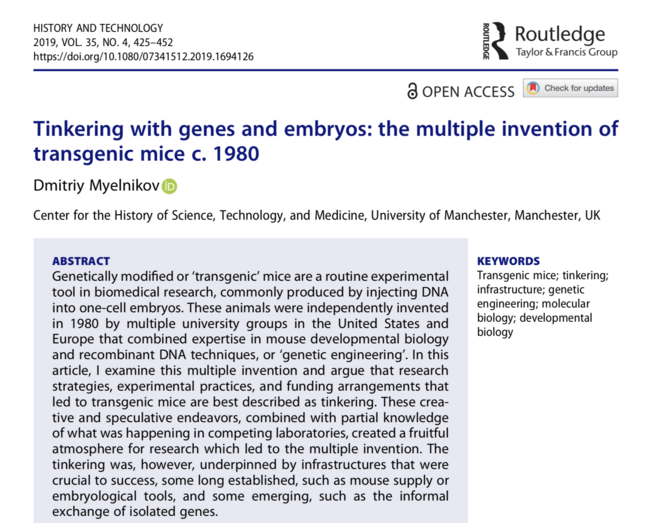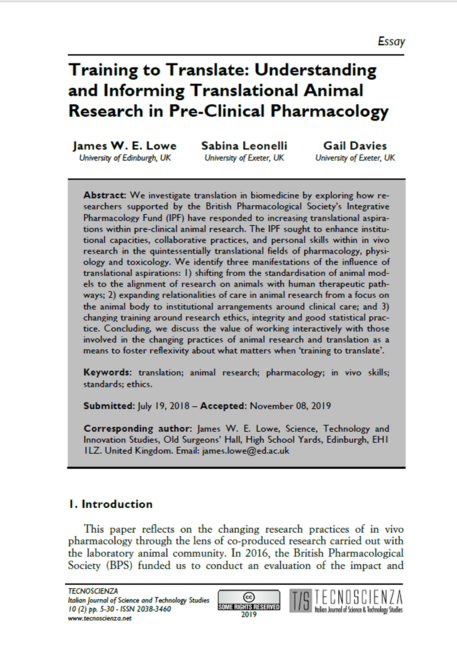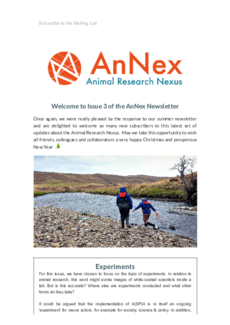Experimental Protocols
As social scientists we are interested in how scientific practices and experimental protocols are shaped by a mix of social and scientific factors. We explore how things like changing regulations and social priorities around animal welfare or translational research benefits have an influence on how scientific experiments are designed and carried out.
Relevant, tagged site content:
Blog entry
This is one of a series of Animal Research Nexus blogs drawing on our current and past work to explore the human-animal and science-society entanglements in the Covid-19 pandemic.
Over 175,000 rats are used in research and testing in the UK every year, with millions more used worldwide. Many of these are housed in cages that do not allow them to stand upright as adults. For example, the current Code of Practice to the UK 1
Social scientists and historians have long observed that laboratory and field research are rather different (e.g., Gieryn, 2006; Kohler, 2002).
Publications
Genetically modified or ‘transgenic’ mice are a routine experimental tool in biomedical research, commonly produced by injecting DNA into one-cell embryos. These animals were independently invented in 1980 by multiple university groups in the United States and Europe that combined expertise in mouse developmental biology and recombinant DNA techniques, or ‘genetic engineering’. In this article, I examine this multiple invention and argue that research strategies, experimental practices, and funding arrangements that led to transgenic mice are best described as tinkering. These creative and speculative endeavors, combined with partial knowledge of what was happening in competing laboratories, created a fruitful atmosphere for research which led to the multiple invention. The tinkering was, however, underpinned by infrastructures that were crucial to success, some long established, such as mouse supply or embryological tools, and some emerging, such as the informal exchange of isolated genes.
In this paper, in Tecnoscienza, we investigate translation in biomedicine by exploring how researchers supported by the British Pharmacological Society’s Integrative Pharmacology Fund (IPF) have responded to increasing translational aspirations within pre-clinical animal research.





